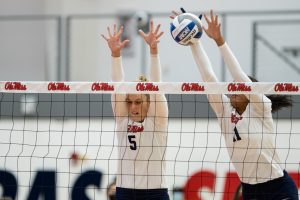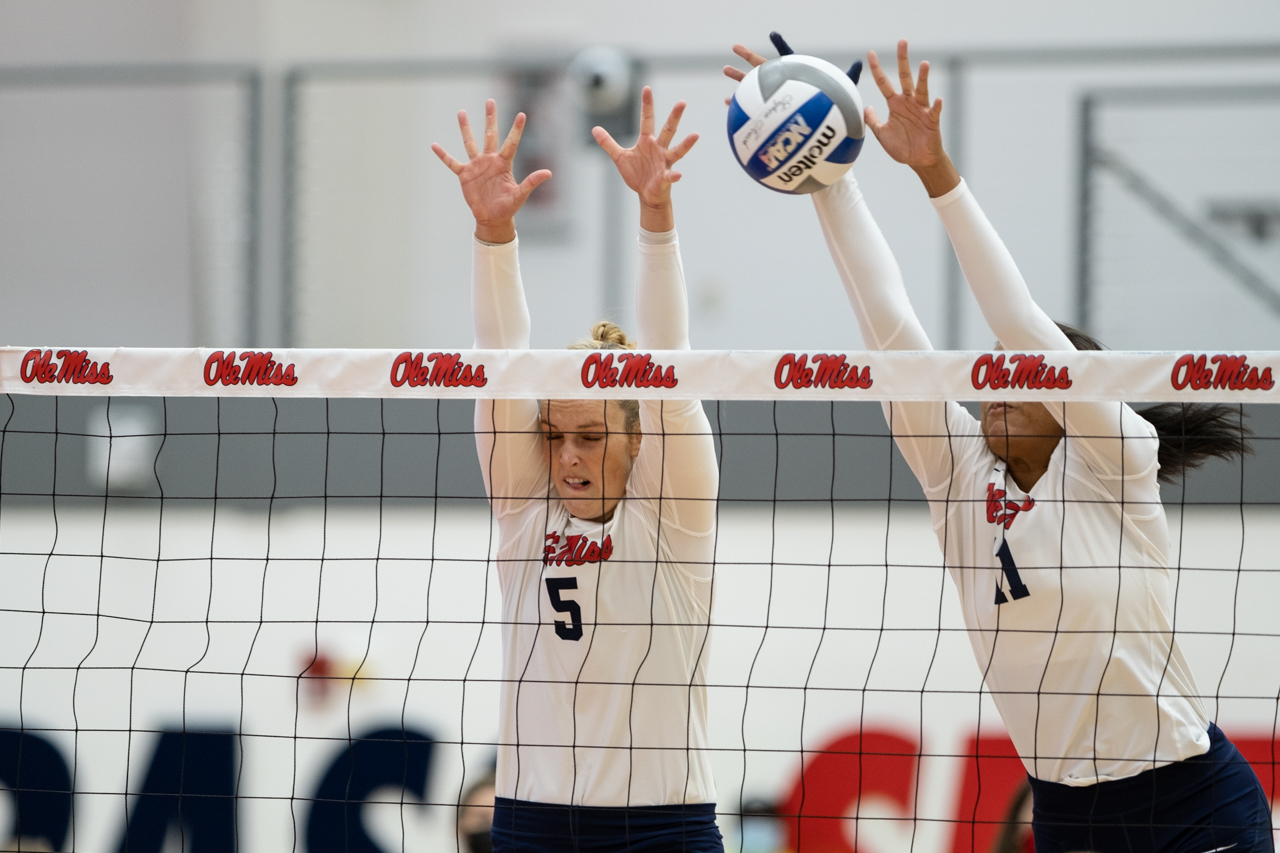
The NCAA Women’s Volleyball Rules Committee has made multiple rule changes that will go into effect for the 2024 fall season. Headlining these changes are amendments to the double-touch rule and how many liberos, or back-row, non-serving players a team can designate during a match.
The double-touch rule refers to the second touch of a point, typically made by a setter, wherein a player can now make double contact with the ball on their set. This rule change has been brewing for years due to mounting frustration with officiating inconsistencies: Many players and coaches cited differences in late-game officiating on what was called a double-touch and what was not.
“The NCAA Playing Rules Oversight Panel approved allowing women’s volleyball players to contact the ball more than once with any part of the body in a single attempt on a team’s second contact when the ball is played to a teammate,” Greg Johnson wrote for the NCAA. “However, if the ball is played over the net in this type of scenario, it would be ruled a fault, and the team would lose the point.”
It is tough to say exactly how this will affect the game from the jump, but it will be interesting to see how coaches adapt to these rule changes.
“I think it keeps the game alive and takes the judgment out of the ref’s hands, which I think the coaches, players and refs appreciate. Ultimately, making a clean set will still put the attacker and team in the best position to score and win,” Ole Miss Women’s Volleyball Head Coach Bre Henry said. “So, we will still train with the goal of clean setting to put our team in the best position to be successful.”
Just like holding calls in college football, double touches in volleyball happen all the time, but they often go uncalled. One thing that seems clear is that players appreciate the changes if for nothing else than consistency in officiating late-game situations.
“I don’t believe this rule change will affect how I train or play as a setter. ‘Doubling’ is not taught at the setter position and also doesn’t happen very often at our level,” Ole Miss setter Mokihana Tufono said. “With this new rule change, any player on the court can deliver a ball to their attacker without worrying about their delivery, ultimately making the game more physical and offensive.”
Alongside the double touch rule, the NCAA changed the way teams designate liberos during a match.
“The panel approved each team being allowed to designate two liberos for each set of the match. Only one libero would be allowed on the court at a time, and the libero would be allowed to serve in one position,” Johnson wrote. “The rationale for the proposal is to allow more players the opportunity to compete and to increase action and improve play.”
With the ability to designate two liberos, a coach now has more options for who they can put on the court.
“I love the flexibility (this rule change provides), and I will be curious to see how teams adapt that into their systems,” Henry said.
Another aspect of this rule change is a libero quality of life improvement. Having two designated liberos means that one can substitute for the other, allowing a team to always have a fresh player on the floor.
“Multiple liberos at the college level is very interesting. However, it was allowed at the club level, so it’s not super foreign to me,” Ole Miss libero Cammy Niesen said. “It’ll be great for teams who have dominant pins that play six rotations and don’t have a set libero. While this new rule has many advantages for those who choose to use it, I think most teams will stick with having one libero so that they can put their next best passer in the lineup.”
The NCAA also listed a couple of minor rule changes encompassing a wide range of regulations, amendments and alterations to already existing rules. For example, referees will now be able to administer a red card to a team if their fans encroach on the court. Additionally, a new rule allows a player to wear a small nose ring or ear cuffs. Lastly, calls of interference above the net are now reviewable, and all protests must be resolved on the court.
As women’s volleyball has gained popularity in recent years — with Nebraska Women’s Volleyball selling out the school’s football stadium for a match is a prime example — these rule changes seem to be an effort to catch up with the times.
People have complained about the double-touch rule for years, and the NCAA has only now made a tangible effort to remedy those concerns. The libero rule change is a nod to the players and coaches, but if everything goes according to plan, it will also improve the overall level of play on the court.














